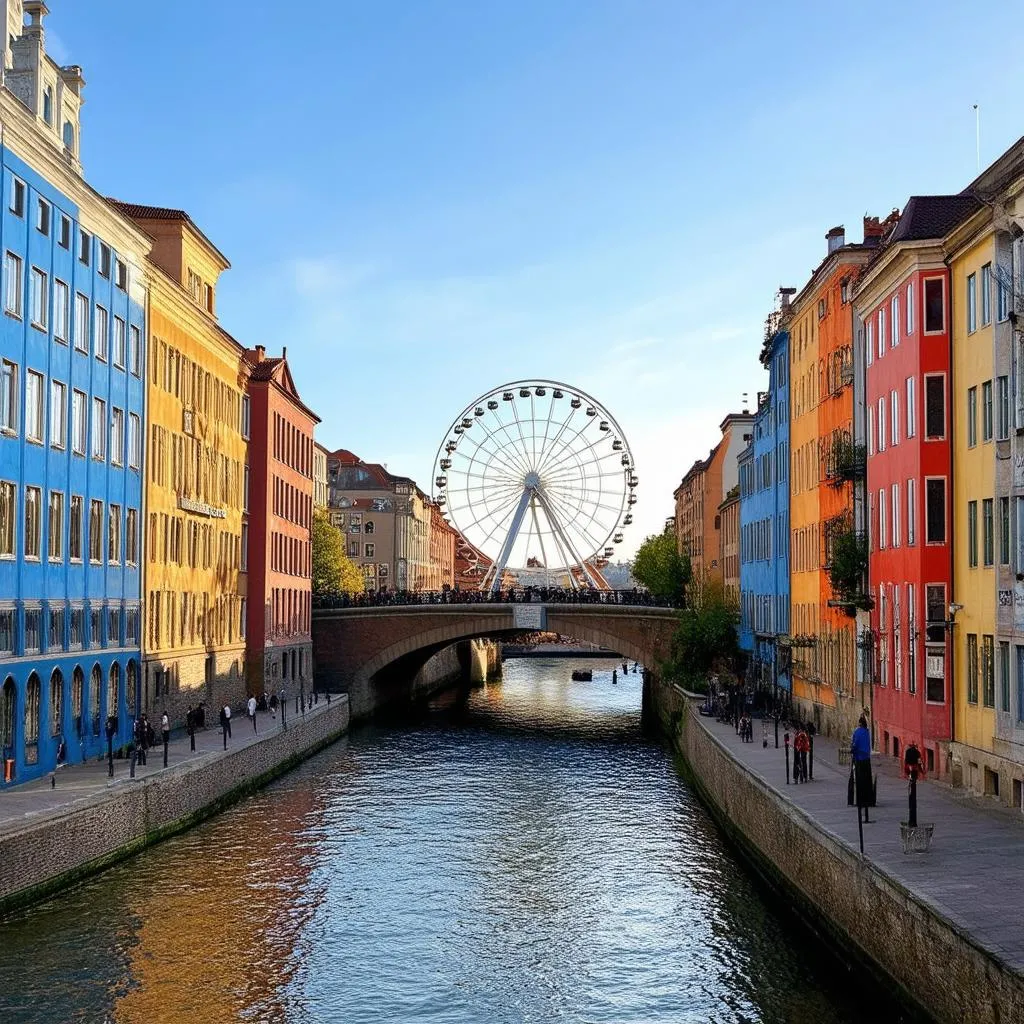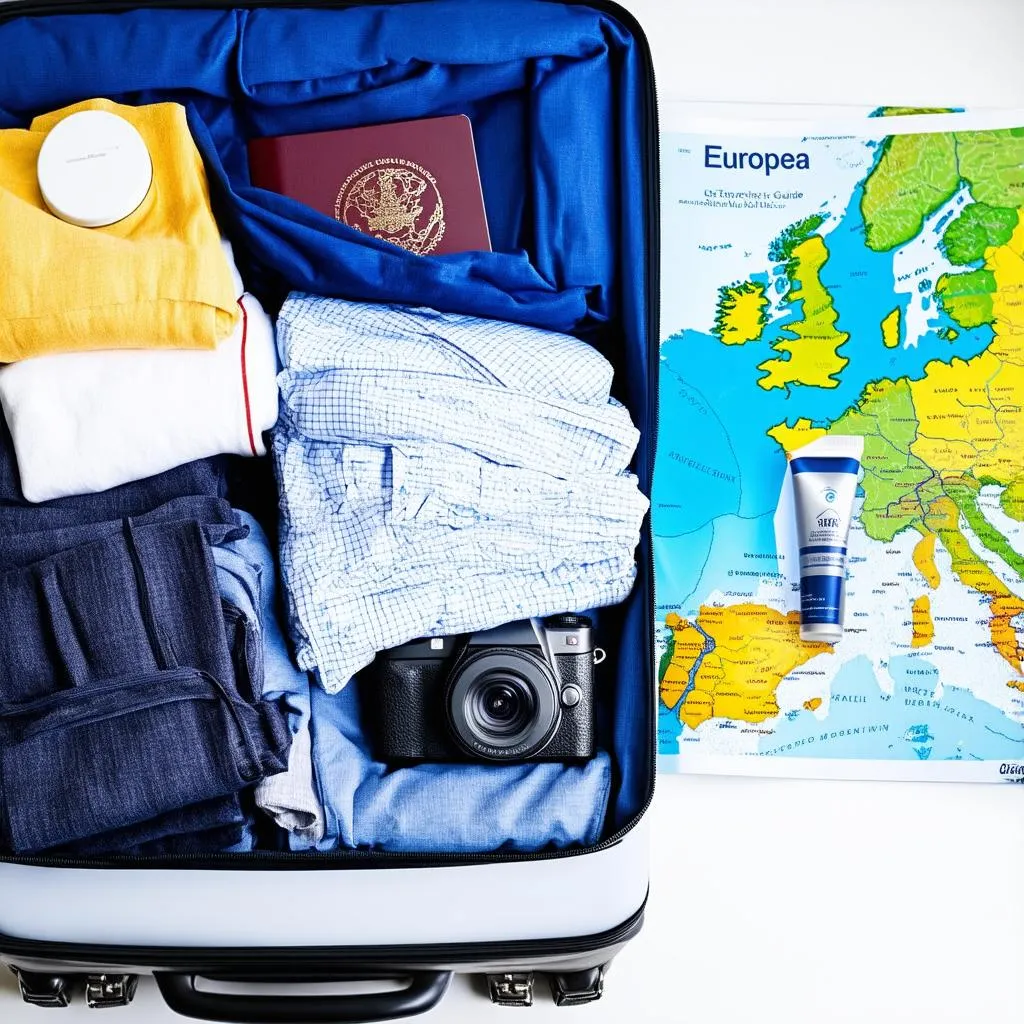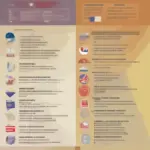Have you ever dreamt of wandering through the cobblestone streets of Rome, indulging in delicious pastries in a Parisian cafe, or witnessing the Northern Lights dance across the Icelandic sky? Europe, with its diverse cultures, breathtaking landscapes, and rich history, beckons travelers from all corners of the globe. However, before you embark on your European adventure, there are some essential things to know to ensure a smooth and unforgettable trip.
Planning Your European Adventure
Choosing Your Destination: Embracing the Spirit of Exploration
Europe is a continent of endless possibilities, so narrowing down your travel destinations can be both exciting and overwhelming.
Consider your interests:
- History buffs: Explore the ancient ruins of Rome, walk the hallowed grounds of Athens, or trace the footsteps of royalty in London.
- Art enthusiasts: Immerse yourself in the masterpieces of Florence, Paris, and Amsterdam, home to iconic museums like the Louvre and the Rijksmuseum.
- Nature lovers: Discover the dramatic fjords of Norway, hike amidst the Swiss Alps, or relax on the sun-kissed beaches of Greece.
- Foodies: Embark on a culinary journey through Italy, France, and Spain, savoring regional specialties and indulging in world-class dining experiences.
Embrace spontaneity: Don’t be afraid to venture off the beaten path and discover hidden gems. Sometimes, the most memorable travel experiences happen when you least expect them.
Travel Tip: Remember to check visa requirements for each country you plan to visit. Citizens of some countries may need to apply for a Schengen visa, which allows entry into most European countries for a specific period.
 A vibrant European cityscape with iconic landmarks
A vibrant European cityscape with iconic landmarks
Budgeting for Your Trip: Making Your Money Go Further
Europe can be as budget-friendly or luxurious as you choose, but it’s essential to plan your finances wisely to avoid overspending.
Consider these factors:
- Travel style: Backpacking will generally be cheaper than staying in luxury hotels.
- Destination: Some countries, like Switzerland and Norway, tend to be more expensive than others, such as Portugal and Hungary.
- Time of year: Traveling during the shoulder seasons (spring and fall) often offers lower prices and fewer crowds compared to the peak summer months.
Tips for saving money:
- Accommodation: Consider staying in hostels, guesthouses, or Airbnb rentals for more affordable options.
- Transportation: Utilize budget airlines, train passes, or even ride-sharing services for cost-effective travel between cities.
- Food: Explore local markets and grocery stores for affordable ingredients to prepare some of your own meals.
Expert Insight: “Don’t underestimate the power of research,” advises travel blogger Emily Jones from “The Budget Traveler.” “By comparing prices, utilizing travel hacks, and taking advantage of free activities, you can stretch your budget further and experience the best of Europe without breaking the bank.”
Packing Smart: Essentials for a European Adventure
Packing for Europe requires a balance between practicality and style. Here’s a list of essential items to pack:
Essentials:
- Comfortable walking shoes: You’ll likely be doing a lot of walking, so comfortable footwear is crucial.
- Versatile clothing: Pack layers that can be easily mixed and matched, and remember to dress modestly when visiting religious sites.
- Adapter and converter: European outlets differ from those in other parts of the world, so be sure to pack the appropriate adapter and converter for your electronics.
- Travel insurance: It’s essential to have travel insurance that covers medical emergencies, trip cancellations, and lost luggage.
- Basic first-aid kit: Include essentials like pain relievers, bandages, and antiseptic wipes.
Travel Tip: Consider packing a reusable water bottle to stay hydrated and reduce plastic waste.
 An open suitcase with clothes, travel essentials, and a map of Europe
An open suitcase with clothes, travel essentials, and a map of Europe
Immersing Yourself in European Culture
Language: Embracing Communication and Cultural Exchange
While English is widely spoken in many tourist areas, learning a few basic phrases in the local language can enhance your travel experience and foster cultural exchange.
Essential phrases to learn:
- Hello
- Thank you
- Please
- Excuse me
- Do you speak English?
Tip: Consider downloading a translation app to assist with communication.
Customs and Etiquette: Navigating Cultural Nuances
Each European country has its own unique customs and etiquette. Here are a few general tips to keep in mind:
- Greetings: It’s customary to greet people with a handshake or a kiss on both cheeks in some countries.
- Dining: In many European countries, it’s considered impolite to begin eating before everyone at the table has been served.
- Tipping: Tipping practices vary across Europe. In some countries, it’s customary to leave a small tip, while in others, service charges are often included in the bill.
Travel Tip: Research local customs and etiquette before your trip to avoid any unintentional faux pas.
Transportation: Navigating Europe’s Efficient Networks
Europe boasts an efficient and extensive transportation network, making it easy to navigate between cities and countries.
Popular transportation options:
- Trains: High-speed trains connect major cities across Europe, offering a comfortable and scenic way to travel.
- Planes: Budget airlines offer affordable flights between European cities, but be mindful of baggage restrictions and additional fees.
- Buses: Buses are a cost-effective option for traveling between smaller towns and villages.
Travel Tip: Consider purchasing a Eurail pass if you plan on extensive train travel.
Staying Safe and Healthy
Health and Safety: Prioritizing Your Well-being
Before embarking on your European adventure, it’s crucial to prioritize your health and safety.
Travel insurance: Ensure you have comprehensive travel insurance that covers medical emergencies, trip cancellations, and lost luggage.
Vaccinations: Consult with your doctor about recommended vaccinations for the countries you plan to visit.
Medications: Pack an adequate supply of any prescription medications you require, and carry a copy of your prescriptions.
Emergency contacts: Keep a list of emergency contact information readily available.
Staying Connected: Navigating Communication and Data
Staying connected while traveling in Europe is easier than ever with various options available.
SIM cards: Consider purchasing a local SIM card upon arrival for affordable data and calling options.
Wi-Fi: Most hotels, cafes, and restaurants offer free Wi-Fi access.
Travel Tip: Download offline maps and essential travel information before your trip to avoid relying solely on data roaming.
Making the Most of Your European Experience
Embrace the Unexpected: Embracing Spontaneity and Adventure
While planning is essential, don’t be afraid to embrace spontaneity and deviate from your itinerary.
Embrace serendipitous encounters: Strike up conversations with locals, get lost in charming neighborhoods, and allow yourself to be surprised by unexpected discoveries.
Travel Tip: Leave room for unplanned adventures – you never know what hidden gems you might stumble upon.
Connect with the Local Culture: Immersing Yourself in Authentic Experiences
One of the most rewarding aspects of traveling to Europe is immersing yourself in the local culture.
Engage with locals: Attend local festivals, markets, and events to experience the destination’s authentic spirit.
Savor the cuisine: Indulge in regional specialties and savor the flavors of traditional dishes.
Learn about the history: Visit historical landmarks, museums, and cultural sites to gain a deeper understanding of the destination’s rich past.
Capture the Memories: Documenting Your Journey
From breathtaking landscapes to cultural encounters, Europe offers endless opportunities for capturing unforgettable memories.
Take photos and videos: Document your experiences through the lens of your camera or smartphone.
Keep a travel journal: Jot down your thoughts, impressions, and highlights from each day.
Travel Tip: Don’t forget to put down your camera or phone occasionally and savor the present moment.
FAQs About Traveling to Europe
What is the best time of year to visit Europe?
Europe offers something special in every season:
- Spring (March-May): Pleasant weather, blooming flowers, and fewer crowds.
- Summer (June-August): Peak season with warm weather, long days, and bustling crowds.
- Fall (September-November): Comfortable temperatures, vibrant foliage, and harvest festivals.
- Winter (December-February): Magical Christmas markets, winter sports opportunities, and cozy ambiance.
Do I need to tip in Europe?
Tipping customs vary across Europe. In some countries, like France and Italy, a service charge is often included in the bill. However, it’s still customary to leave a small tip for good service. In other countries, like Germany and Austria, rounding up the bill is a common practice.
Is it safe to travel alone in Europe?
Europe is generally a safe destination for solo travelers, but it’s always wise to take precautions:
- Stay in well-lit and populated areas.
- Be aware of your surroundings.
- Don’t flaunt expensive jewelry or large amounts of cash.
- Keep your valuables secure.
What should I do if I lose my passport in Europe?
If you lose your passport, it’s crucial to report it to the local police and your nearest embassy or consulate immediately. They will guide you through the process of obtaining a temporary travel document.
Embrace the European Adventure
Traveling to Europe is an enriching and transformative experience. By planning ahead, embracing the local culture, and prioritizing your safety, you can create memories that will last a lifetime. Visit TRAVELCAR.edu.vn for more travel tips and inspiration to plan your European adventure.

